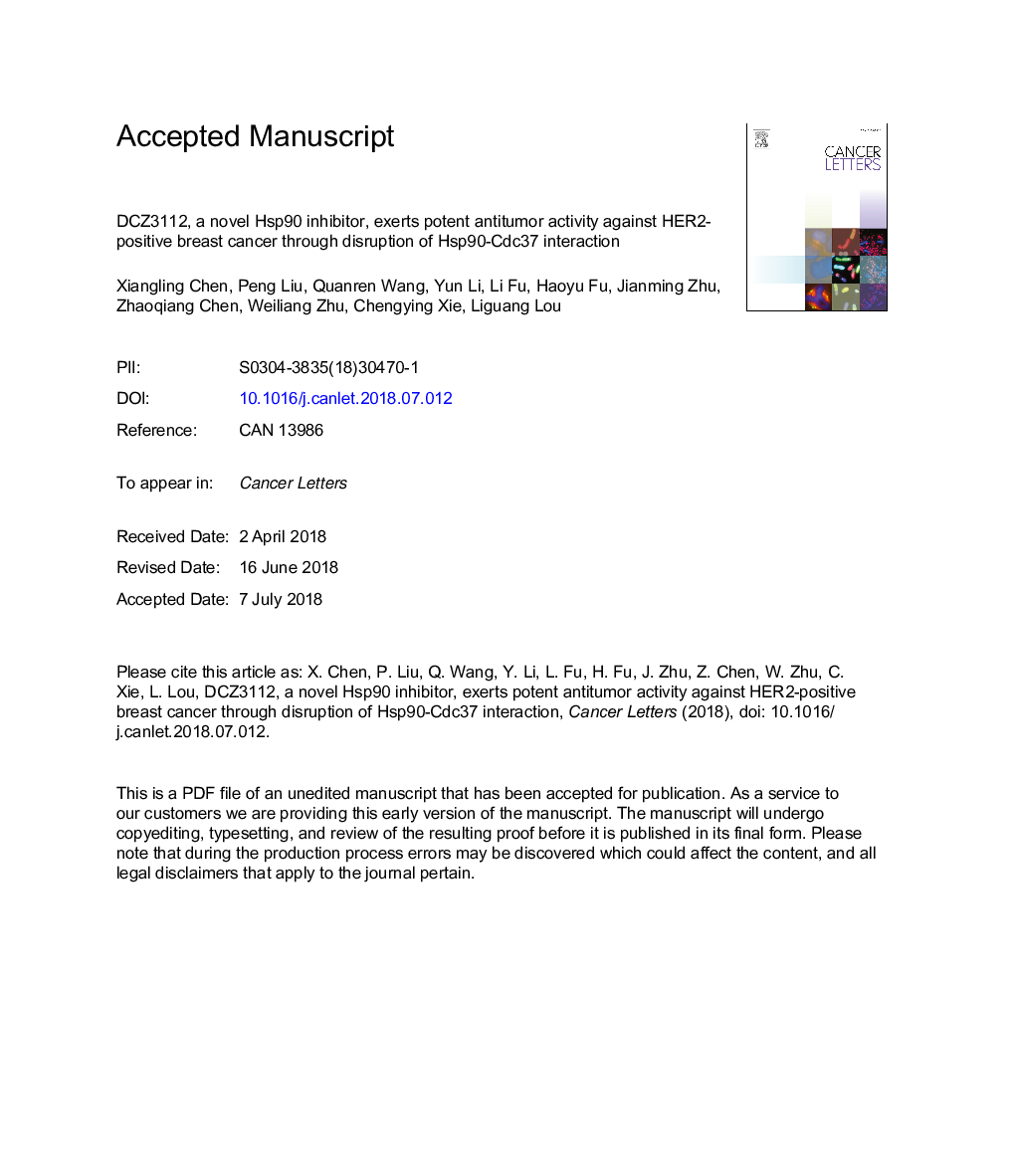| Article ID | Journal | Published Year | Pages | File Type |
|---|---|---|---|---|
| 8434115 | Cancer Letters | 2018 | 41 Pages |
Abstract
Hsp90 regulates the stability of oncoproteins important in tumor development and progression, and represents a potential therapeutic target. However, all Hsp90 inhibitors currently in clinical trials target Hsp90 ATPase activity and exhibit low selectivity and high toxicity. In this study, we discovered a new Hsp90 inhibitor, DCZ3112, with a novel mechanism of action. DCZ3112 directly bound to the N-terminal domain of Hsp90 and inhibited Hsp90-Cdc37 interaction without inhibiting ATPase activity. DCZ3112 inhibited the proliferation predominantly in HER2-positive breast cancer cells, including those resistant to the classical Hsp90 inhibitor geldanamycin, which mainly targets ATPase. DCZ3112 produced synergistic in vitro activity in inhibiting cell proliferation, inducing G1-phase arrest and apoptosis, and reducing AKT and ERK phosphorylation. Consistent with this, DCZ3112 alone inhibited the growth of HER2-positive BT-474 xenografts, and exhibited enhanced antitumor activity when combined with the anti-HER2 antibody trastuzumab. Importantly, DCZ3112 also significantly inhibited the growth of trastuzumab-resistant BT-474â¯cells, and combined treatment retained synergistic antitumor activity. Thus, our findings show that disrupting Hsp90-Cdc37 interaction may represent a promising strategy against HER2-positive breast cancer, especially those with acquired resistance to trastuzumab.
Related Topics
Life Sciences
Biochemistry, Genetics and Molecular Biology
Cancer Research
Authors
Xiangling Chen, Peng Liu, Quanren Wang, Yun Li, Li Fu, Haoyu Fu, Jianming Zhu, Zhaoqiang Chen, Weiliang Zhu, Chengying Xie, Liguang Lou,
